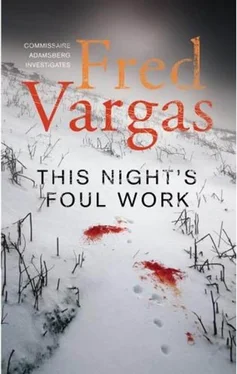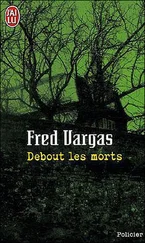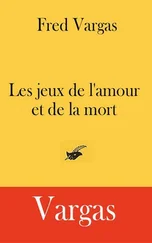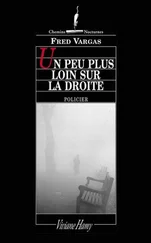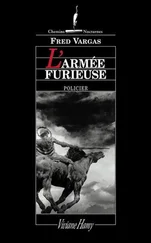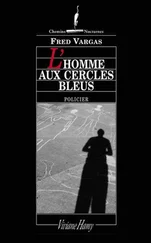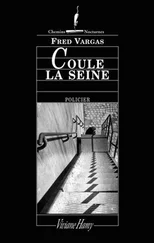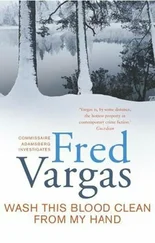‘Like everything beautiful,’ said Anglebert, ‘they’re complicated. They’re heavy, you got to understand, and they catch on the branches. So after the fighting they fall off.’
‘It’s like laying down his arms, if you like. He’s got his females, he drops his weapons.’
‘Females, now, they’re complicated,’ said Robert, still pursuing his train of thought.
‘But beautiful.’
‘Like I said,’ muttered the old man, ‘more beautiful they are, more complicated. No good trying to understand everything in this world.’
‘No, right,’ said Adamsberg.
‘Ah, well.’
Four of the men took a mouthful of wine at the same time, with no apparent coordination.
‘So it falls off, and that’s what we call cast antlers,’ Hilaire went on. ‘You can find them in the forests like mushrooms. But antlers from a kill, they’ve been cut off from the animal you hunted. See? Living bone.’
‘And this killer doesn’t care about living bone,’ said Adamsberg, returning to the murdered stag. ‘He’s just interested in death. Or the heart.’
‘That he is.’
ADAMSBERG TRIED TO EXPEL THE STAG FROM HIS MIND. HE DIDN’T WANT TO go into the hotel room with all that blood in his head. He paused in front of the door, wiping his thoughts, clearing his brow, and forcing himself to think about clouds, marbles and blue skies. Because in the hotel room a child aged nine months was asleep. And with children you never know. They can penetrate your skull, hear the ideas moving around, feel the sweat of anguish and maybe even see a picture of a slaughtered stag in their father’s head.
He pushed the door open quietly. He had not told the male assembly the truth. Accompanying, yes, out of consideration, yes, but so as to babysit the child, while Camille played her viola up at the chateau. Their last break-up – had it been the fifth or the seventh? he wasn’t sure – had led to an unforeseen catastrophe. Camille had become a good friend, a comrade, something that drove him to desperation. Towards him she was absent-minded, smiling, affectionate and familiar: in short, and tragically, just a good friend. This new state of affairs disconcerted Adamsberg who was trying to find the fault line, to dislodge the feeling beating under this natural mask, like a crab under a rock. But Camille seemed really to be walking away into the distance, freed of her former stress. And as he said to himself, as he greeted her with a polite kiss, trying to bring an exhausted friend back towards a renewal of love was a near-impossible task. He was therefore concentrating, in a fatalist manner and to his own surprise, on his paternal function. He was a beginner in that domain, and was still trying to assimilate the information that the child was his son. He thought he would have put in as much effort if he had found the baby on a park bench.
‘He’s not asleep yet,’ said Camille, putting on her formal black jacket.
‘I’ll read him a story. I’ve brought a book.’
Adamsberg pulled a large volume out of his overnight bag. The fourth of his sisters had taken it upon herself to try and cultivate his mind and complicate his life. She had packed for him a four-hundred-page book on architecture in the Pyrenees, something he had no interest in, and given him the assignment of reading it and telling her what he thought of it. His sisters were the only people Adamsberg obeyed.
‘Buildings of the Béarn,’ he read. ‘Traditional techniques from the twelfth to the nineteenth century.’
Camille shrugged and smiled, unmistakably taking on the role of a sympathetic friend. As long as the child went to sleep – and on this point she trusted Adamsberg absolutely – his oddities didn’t matter. Her thoughts were entirely concentrated on the concert that evening – a heaven-sent engagement for her, and no doubt due to Yolande’s regular prayers to the Powers-that-be.
‘He likes this one,’ Adamsberg said.
‘Yes, why not?’
No criticism, no irony. The blank neutrality of authentic friendship.
Once he was alone, Adamsberg examined his son, who was looking at him with a philosophical expression – if that can be said of a nine-month-old baby. The child’s concentration on something far away, his indifference to little worries, even his placid absence of desires concerned Adamsberg, since so much of that resembled him. Not to mention the dark eyebrows, the nose which looked as if it would later be dominant, and a face so unusual in every respect that he looked two years older than his age. Thomas Adamsberg was a chip off the old block, which was not what the commissaire would have wished on him. But through the resemblance, Adamsberg was starting to see, in fits and starts, that this child really was the fruit of his own loins.
He opened the book at the page marked by the metro ticket. He usually turned down the corner of the page, but his sister had asked him not to spoil this book.
‘Tom, now listen to me, we’re both going to be educated, we’ve got no choice. Remember what I read you last time about north-facing façades? Remember all that? Now, this is how it goes on.’
Thomas looked up calmly at his father, his expression attentive but indifferent.
‘… “The use of stones from the river bed to build walls, a combinatory approach indicating an organisation adapted to local resources, is a widespread, though not universal practice.” Like the sound of that, Tom? “ The introduction of the opus piscatum into many of these walls constitutes a compensatory mechanism, occasioned by the small dimensions of the materials and the weakness of the unstable mortar.” ’
Adamsberg put the book down, meeting his son’s gaze.
‘I don’t know what the hell the “opus spicatum” is, son, and I don’t care. So we can agree about that. But I’m going to teach you how we resolve a problem like this when it crops up in our lives. How to proceed when you don’t understand something. Just watch.’
Adamsberg took out his mobile and slowly tapped out a number under the child’s unconcerned eyes.
‘What you do is you call Danglard,’ he explained. ‘It’s quite simple. Just remember that, always keep his phone number about you. He can fix anything in this line of country. You’ll see, just pay attention now.’
‘Danglard? Adamsberg. I’m sorry to disturb you, but the little one doesn’t understand this word, and needs an explanation.’
‘Go ahead,’ said Danglard wearily. He was used to the commissaire ‘s wayward habits. He had implicitly been given the mission of dealing with them.
‘Opus spicatum . He wants to know what that means.’
‘No, he doesn’t – he’s only nine months old, for God’s sake.’
‘I’m not joking, capitaine , he wants to know.’
‘Commandant,’ Danglard corrected.
‘Danglard, are you going to harp on about your rank for ever? Capitaine or commandant , does that really matter between us? Anyway, that isn’t the question. The question concerns the opus spicatum.’
‘Piscatum,’ Danglard corrected.
‘OK. It’s some sort of opus they put in village walls by some compensatorily occasioned mechanism. Tom and I are stuck in this place, and we can’t think about anything else. Except that in Brétilly, a month ago, someone demolished a stag and didn’t even take the antlers, but cut out the heart. What does that say to you?’
‘Some crazy lunatic,’ said Danglard, gloomily.
‘Exactly. That’s what Robert said too.’
‘Who’s Robert?’
Danglard might curse as much as he liked every time Adamsberg called him up for some inconsequential trifle, but he could never tear himself away from the conversation, assert himself, or get cross and hang up. The commissaire’s voice, like a slow, gentle and embracing breeze, carried his will-power along like a leaf on the ground, or one of the damned pebbles in the damned river. Danglard reproached himself for this, but in the end he always gave way. The water wins in the end.
Читать дальше
